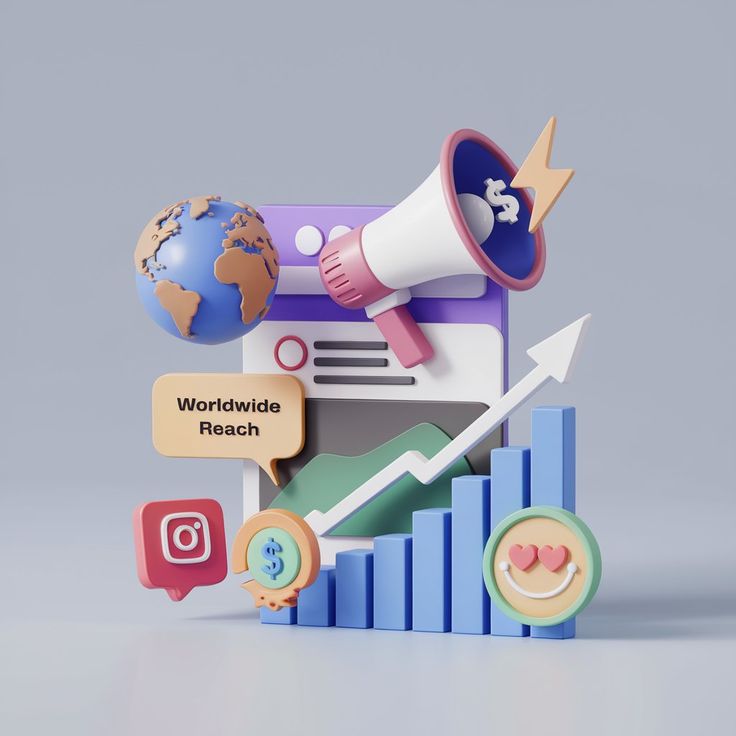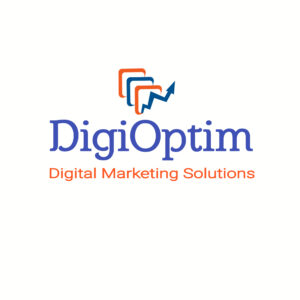Digital Marketing Strategy for Small Business
Having a strong digital marketing strategy for small businesses is not only beneficial but also necessary in the fast-paced digital world of today. The correct marketing plan will significantly improve your visibility, attract more customers, and ultimately improve your revenue, no matter whether you’re managing a neighborhood coffee shop or an internet store.
This guide, which was created especially for small business owners hoping to compete (and succeed) in the online market, lays down what you need to know in an approachable, conversational way. Let’s get started.
Why Digital Marketing Strategy for Small Business Matters?

Digital marketing strategy for small business levels the playing field. You don’t need a million-dollar ad budget to reach your audience online. With the right approach, even a one-person business can compete with industry giants. Here are a few reasons why digital marketing strategy is essential:
Cost-effective compared to traditional advertising
Highly targeted — you reach the exact audience you want with Digital Marketing Strategy for Small Business
Provides measurable results and insights
Builds brand recognition and trust
Define Your Goals and Know Your Audience
Before jumping into tactics, take a moment to think about what you want to achieve.
By using Digital Marketing Strategy 2025 Are you trying to:
Increase sales?
Drive traffic to your website with Digital Marketing Strategy for Small Business?
Get more social media engagement?
Generate leads by using Digital Marketing Strategy for Small Business?
Once you have clear goals, define your ideal customer by using Digital Marketing Strategy for Small Business. Who are they? What do they care about? Where do they spend time online?
Use tools like:
Google Analytics
Facebook Insights
Customer surveys
Knowing your audience helps shape your message and pick the right platforms with Best digital marketing strategy for small business.
Build a Strong Online Presence with a Website
Your website is your digital storefront. It should be fast, mobile-friendly, easy to navigate, and optimized for search engines.
Here are some key tips for Digital Marketing Strategy for Small business:
Use a clean, professional design
Add clear calls-to-action (CTAs)
Make sure your site is secure (HTTPS) and loads fast
Optimize pages for SEO (more on this below)
Don’t forget to include these must-have pages:
Home
About Us
Services or Products
Contact
Blog (for content marketing and SEO)
Search Engine Optimization (SEO): Be Found on Google
SEO is the practice of optimizing your site so it shows up in search engine results. When done right, SEO brings in free, consistent traffic.
Focus on below digital marketing strategy steps:

Keyword research: Use tools like Google Keyword Planner or Ubersuggest
On-page SEO: Include keywords in your titles, headers, meta descriptions, and content
Off-page SEO: Build backlinks from trusted sources
Local SEO: Optimize your Google Business Profile and collect customer reviews
Pro Tip: Start a blog and publish helpful content related to your industry. This builds authority and attracts visitors organically.
Content Marketing: Give Value First
Content is the heart of modern digital marketing. Instead of selling outright, you’re providing value—through blogs, videos, eBooks, or podcasts.
Why content marketing works as the best digital marketing strategy for the small business :
It builds trust with your audience
Improves your SEO
Positions you as an industry expert
Fuels your email and social media marketing
Types of content you can create:
How-to guides
Product comparisons
Industry news
FAQs
Behind-the-scenes stories in digital marketing strategy :
Remember: Be helpful, not pushy. People will buy from you when they trust you.
Social Media Marketing: Engage Where Your Audience Hangs Out
Not every business needs to be on every platform. Pick the ones that match your audience and industry.
Here’s a quick guide:
Facebook – Great for local visibility and ads
Instagram – Perfect for visual brands (food, fashion, fitness)
LinkedIn – Best for B2B
TikTok – Popular with younger audiences and creative brands
X (formerly Twitter) – Real-time engagement and updates
Post regularly, engage with your followers, and don’t be afraid to show some personality. People buy from people.
Email Marketing: The ROI King
Email marketing remains one of the highest ROI digital marketing channels—returning $36+ for every $1 spent.
Start by:
Creating a lead magnet (e.g., free guide or discount)
Building an email list through your website or social media
Sending value-packed newsletters, updates, or exclusive offers
Use tools like:
Mailchimp
ConvertKit
ActiveCampaign
Segment your list and personalize emails for better engagement. Avoid spammy sales pitches—focus on building relationships.
Pay-Per-Click Advertising (PPC): Instant Visibility
While SEO takes time, PPC ads can get you instant results. Whether through Google Ads or social media platforms, PPC is perfect for promoting:
New products or services
Limited-time offers
Local events
Lead magnets
Tips for success:
Target the right keywords and demographics
Set clear budgets and goals
Track your conversion rate
A/B test different ad creatives
Even a small budget can go far with the right targeting and messaging.
Track Your Results and Adjust as Needed
Don’t set it and forget it. Digital marketing is dynamic, and what works today might need tweaking tomorrow.
Digital marketing strategy google:

Use these tools to monitor your progress.
Google Analytics – Understand where your traffic comes from
Search Console – Track keyword performance and fix SEO issues
Social media insights – Measure engagement and reach
Ask yourself:
What’s working well?
What’s underperforming?
What can I test or improve?
Small tweaks can lead to big wins over time.
Automate and Scale When Ready
Once you’ve got a solid foundation, start automating tasks so you can focus on growth.
Use tools for:
Scheduling social media posts (e.g., Buffer, Hootsuite)
Automating email flows (e.g., welcome series, abandoned cart reminders)
CRM systems to manage leads and customers
This ensures consistency while freeing up your time to focus on high-level strategy.
Conclusion: Your Digital Success Starts Now
Crafting a digital marketing strategy for small business doesn’t have to be overwhelming. Start small, stay consistent, and focus on providing value to your audience. With time and the right tactics, you’ll build trust, grow your customer base, and stand out in your industry.
Whether you’re new to digital marketing or looking to refine your current efforts, the key is to stay curious, keep learning, and adapt to your audience’s needs.
Your customers are online. It’s time your business was too.
